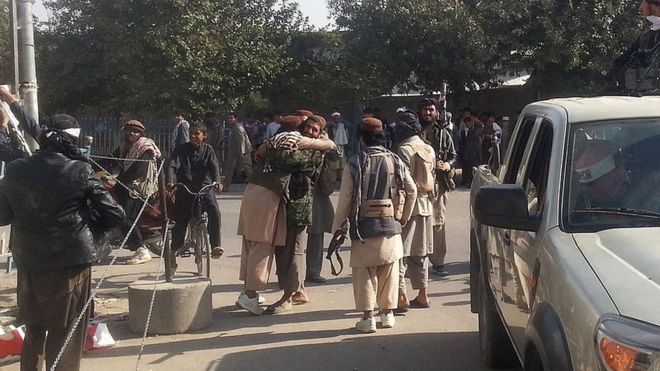By Christine Khamis
Impunity Watch Reporter, Asia
KABUL, Afghanistan –
On Monday, Taliban militants captured Kunduz, a provincial capital in Afghanistan. Afghan military forces regained the center of Kunduz on Thursday, but Taliban soldiers still remain in other areas of the city.
Kunduz, a city of 300,000, was taken over by the Taliban before dawn on Monday, taking Afghan troops and police by surprise. The Taliban occupied Kunduz for three days before retreating as Afghan forces regained control of the city center.
The Taliban has been accused of committing extrajudicial killings and other atrocities including rape and torture against civilians during its three-day takeover. The militants also looted Kunduz’s banks and military weaponry and set fire to government buildings.

The capture of Kunduz was a victory for the Taliban’s new leader, Mullah Akhtar Mansour, because it is one of the most strategic and wealthy cities in Afghanistan and is the first provincial capital to fall to the Taliban since the U.S. intervened in 2001.
The Deputy Chief of Staff for the Afghan army, Murad Ali Murad, has stated that most Taliban fighters had fled Kunduz, but that some are hiding in the homes of the civilians. A spokesman for the Taliban told Reuters that Taliban forces had retreated to the edges of Kunduz in an effort to surround Afghan and U.S. soldiers.
Thousands of civilians are reported to have fled from Kunduz during the fighting. The number of civilians killed during the fighting in Kunduz is currently unknown. As of Wednesday, around 30 people had been killed and around 340 were wounded.
Hospitals in Kunduz are running low on supplies due to Taliban roadblocks on the route from Kabul to Kunduz. Medical professionals are unable to get to the hospitals due to continued fighting in Kunduz.
The International Committee of the Red Cross (ICRC), which has doctors working in Kunduz, has expressed growing concerns about the welfare of Kunduz citizens and the lack of proper medical supplies and personnel. The ICRC has emergency medical supplies ready to be flown when it is safe to land at Kunduz airport, which has been the staging area for Afghan forces attempting to retake control of the city.
The Taliban has started to gain ground recently, raising the question of whether NATO-trained Afghan security forces are prepared to face the Taliban’s insurgency on their own. NATO forces ended their combat mission in Afghanistan last year, but there are currently around 10,000 U.S. troops in Afghanistan who have the role of training, advising, and assisting Afghan security forces.
Before the Taliban regime was overturned by a U.S.-led intervention in 2001, its five-year-long rule over Afghanistan was characterized by acts such as public executions and the denial of rights to women.
For more information, please see:
New York Times – U.S. Strikes Positions in Afghanistan as Taliban Gain Momentum – 2 October 2015
Reuters – Afghan Forces Push Into Taliban-Held Kunduz City Amid Fierce Clashes – 2 October 2015
Reuters – Taliban Hold Out in Northern Afghan City, District in Northeast Falls – 2 October 2015
BBC News – Taliban Triumph in Capture of Kuduz – 1 October 2015
CNN – Why the Taliban Takeover of Kunduz is a Big Deal – 29 September 2015